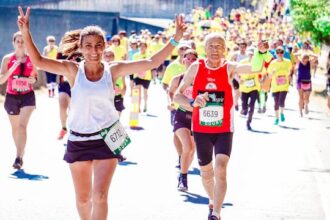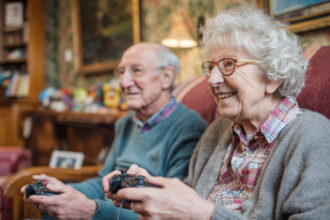Recent groundbreaking research at the University of São Paulo’s School of Physical Education and Sports (EEFE-USP) in Brazil has illuminated the optimal timing of aerobic exercise for elderly individuals managing hypertension. Published in The Journal of Physiology, the study highlights the superior efficacy of evening aerobic training in regulating blood pressure compared to morning sessions, providing a significant advancement in the field of cardiovascular health.
Leandro Campos de Brito’s study investigated how timing impacts cardiovascular health outcomes in hypertensive elderly patients. The findings revealed that evening exercise sessions, conducted over ten weeks on stationary bicycles at moderate intensity, resulted in significant improvements in several key cardiovascular parameters. These included reductions in systolic and diastolic blood pressure, enhanced sympathetic baroreflex sensitivity, and better muscle sympathetic nerve activity control.
Central to the study’s findings is the role of the autonomic nervous system, which governs vital functions such as heart rate and blood pressure regulation. Brito and his team observed that evening exercise bolstered baroreflex sensitivity, a mechanism crucial for maintaining stable blood pressure levels. Unlike morning sessions, which showed limited impact on these parameters, evening exercise exhibited marked improvements in autonomic regulation and overall cardiovascular health.
“Our study underscores the critical role of baroreflex sensitivity in enhancing cardiovascular outcomes through evening aerobic exercise,” Brito explained. This mechanism operates by sensing blood pressure changes and adjusting heart rate and arterial contraction to maintain stability. The study’s results suggest that evening exercise optimises these responses, offering a compelling non-pharmacological strategy for managing hypertension in elderly patients.
The research, part of Brito’s postdoctoral project supported by FAPESP and supervised by Professor Cláudia Lúcia de Moraes Forjaz at EEFE-USP, marks a significant advancement in understanding the circadian rhythm influences on cardiovascular health. It builds upon earlier findings by the EEFE-USP team, demonstrating superior blood pressure control with evening aerobic training in hypertensive men.
“Our findings contribute to a growing body of evidence supporting the efficacy of evening exercise for hypertensive patients, particularly those resistant to conventional treatments,” Brito emphasised. The study’s implications extend beyond mere exercise timing, offering insights into personalised therapeutic approaches that harness the body’s natural rhythms to improve health outcomes, paving the way for more effective and tailored treatments in the future.
Moving forward, Brito and his collaborators at Oregon Health & Science University’s Oregon Institute of Occupational Health Sciences in the United States continue to explore circadian rhythm dynamics in cardiovascular health. Their ongoing research aims to elucidate the precise mechanisms through which evening exercise confers its therapeutic benefits, inviting the audience to be part of this continuous journey towards tailored interventions in clinical settings.
The study underscores the transformative potential of evening aerobic exercise as a cornerstone of non-pharmacological hypertension management strategies for elderly patients. By enhancing baroreflex sensitivity and improving autonomic nervous system function, evening exercise offers a promising avenue for promoting cardiovascular health and improving quality of life in hypertensive populations.
More information: Leandro C. Brito et al, Evening but not morning aerobic training improves sympathetic activity and baroreflex sensitivity in elderly patients with treated hypertension, The Journal of Physiology. DOI: 10.1113/JP285966
Journal information: The Journal of Physiology Provided by Fundação de Amparo à Pesquisa do Estado de São Paulo








